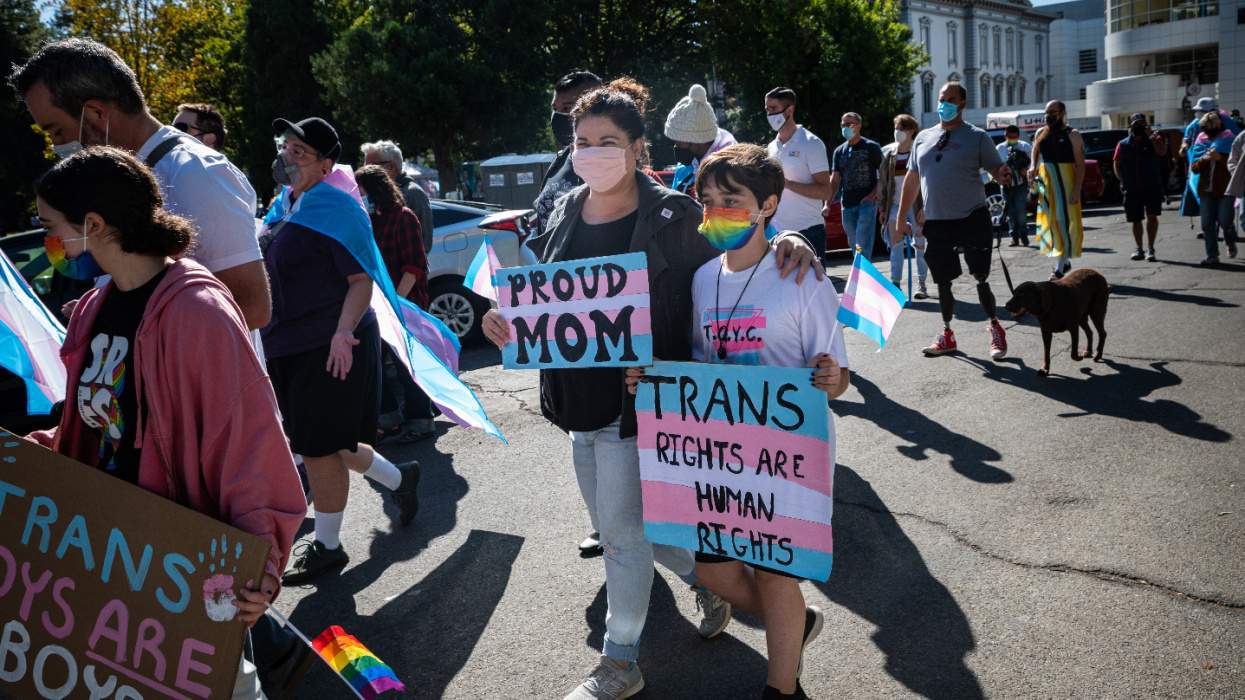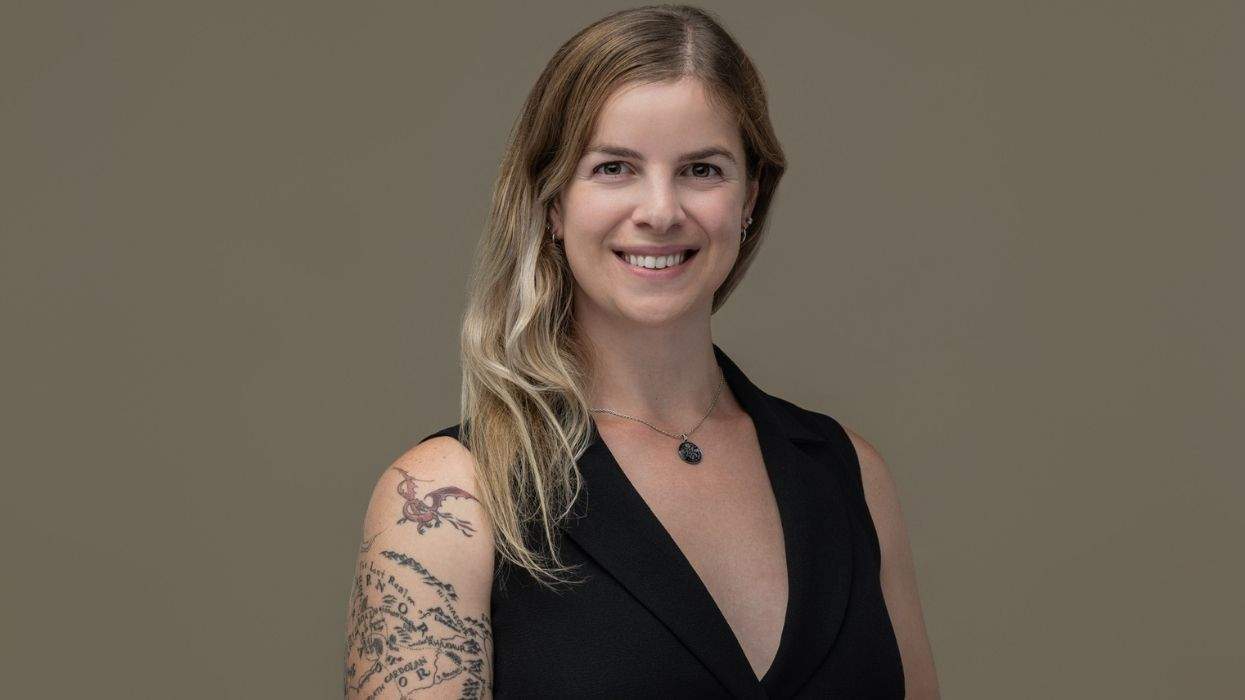In a decision from May that was only made public this week, Administrative Law Judge William J. Borah ruled that Hobby Lobby violated the Illinois Human Rights Act by refusing to allow a transgender female employee to use the women's restroom at work.
That employee, Meggan Sommerville, began her gender transition in 2009, and has worked as the frame shop manager at Hobby Lobby's location in Aurora, Ill., for more than 16 years. She first filed a complaint against Christian-owned chain of Oklahoma City-city based arts and crafts stores in 2011 when, she says, management wrote her up for using the women's restroom. Her complaint with the Illinois Department of Human Rights alleging discrimination in employment and public accommodations was initially dismissed in 2012 for lack of evidence, and then reinstated and advanced to the administrative law judge, as The Advocate reported.
"I'm just looking to be treated equally with every other female in the company -- not just in the store, but in the company," Sommerville told Newsweek last year. "If they recognize me as female for certain things, why can't they recognize me as female for everything?"
While management did not fire Sommerville, and acknowledged her as a woman once she legally changed her state ID and birth certificate in 2010, her complaint alleges that by sanctioning her for using the women's bathroom, managers created a hostile environment. Moreover, Hobby Lobby management maintained that Sommerville had to first undergo specific gender-affirming surgeries before using the bathroom that corresponded with her gender identity.
Sommerville's attorney, Jacob Meister, told The Advocate that such a requirement is "absurd" and "unlawful," and "there's absolutely no support in the law for this." Not only is gender-confirmation surgery costly, many trans people do not desire or cannot access such procedures, while it remains unknown whether Medicaid or health insurers for low- to middle-income people in Illinois even cover such surgery.
Last year, the U.S. Supreme Court held in a 5-4 vote in Burwell v. Hobby Lobby that religiously minded business owners essentially may "line-item veto" birth control coverage out of their employees' health plans. The court based its decision on the claim that Hobby Lobby and other "closely held corporations" are protected from the government interference with the owners' exercise of religion as guaranteed by the Religious Freedom Restoration Act of 1993. The Internal Revenue Service defines a "closely held corporation" as one in which more than 50 percent of the value of all outstanding stock is owned by five or fewer people.
Acknowledging the close relationship between reproductive rights and LGBT rights, activists warned that if Hobby Lobby and Conestoga Wood Specialties -- the two businesses that challenged the Affordable Care Act's contraception coverage requirement -- could use their "sincerely held religious beliefs" to deny contraception to employees, then they might use the same power to deny health care to transgender people or withhold coverage for HIV and AIDS treatment to employees.
In an op-ed for The Advocate, Jennifer C. Pizer, Lambda Legal's senior counsel and law and policy project national director, argues that the Burwell decision presents a slippery slope that likely opens the door for businesses to discriminate against LGBT people under the guise of religious freedom.
This week's ruling in Sommerville's case shows that anti-LGBT discrimination was already alive and well within Hobby Lobby prior to the Burwell ruling. As ThinkProgress explains, Somerville suffers from fibromyalgia, a chronic pain condition which increases her need to use the restroom. Still, Hobby Lobby management restricted her to using the male restroom, or waiting up to six hours for her lunch break to use the facility at a nearby fast food restaurant. When Sommerville was written up for using the women's restroom in 2011, she was not officially working, but rather visiting her store as a customer. Hobby Lobby management went to enormous lengths to deny Sommerville use of the correct bathroom, even constructing a separate gender-neutral single-stall restroom in 2014, which remains the only restroom that management has approved Sommerville to use.
The ruling also pointed to additional evidence suggesting Hobby Lobby's intentional mistreatment of Sommerville, including the fact that Hobby Lobby changed its own policies in order to discriminate against Sommerville. At first, Sommerville was told she was required her to obtain gender-confirmation surgery to use the women's restroom (which would, presumably, not be covered by the insurance she may have had through her employer).
But then in 2014, the company demanded that Sommerville change the gender marker on her birth certificate, in what appears to be an attempt to capitalize on the fact that, at the time, Illinois still required transgender residents to get surgery if they wanted to change the gender marker on their birth certificate. After three trans people sued the state, the American Civil Liberties Union helped devise an agreement in 2012 whereby genital surgery was not the only kind of surgery required to update gender markers on birth certificates in Illinois.
Where the judge's ruling leaves Sommerville is unknown. The ruling was a recommendation that the Illinois Human Rights Commission must now affirm. For now, Sommerville still soldiers on as an employee at Hobby Lobby.















Charlie Kirk DID say stoning gay people was the 'perfect law' — and these other heinous quotes
These are some of his worst comments about LGBTQ+ people made by Charlie Kirk.